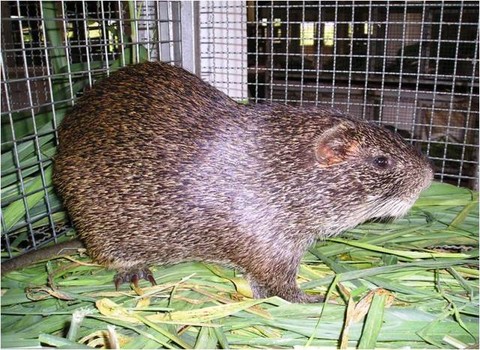 Biodiversity needed to feed the world
Biodiversity needed to feed the world
This page gives a brief description about the interaction between biodiversity and agriculture. It provides a few notes on the contribution of biodiversity to food security and invites readers to help conserve the few species available.
| Release date | 22/05/2008 |
|---|---|
| Contributor | Eric Okoree |
| Keywords | Biodiversity, agriculture, |
 Rising food prices and pressures from climate change affecting fields and orchards necessitates the need to properly protect and manage the world’s biodiversity (including that of Ghana) in order to ensure a secured supply of food for a growing world population.
Rising food prices and pressures from climate change affecting fields and orchards necessitates the need to properly protect and manage the world’s biodiversity (including that of Ghana) in order to ensure a secured supply of food for a growing world population.
Agriculture can promote biological diversity if it shows due respect for nature. But agriculture can also become a danger for biological diversity, e.g. through the excessive use of pesticides or by creating mono cultures. However, one thing is beyond doubt: agricultural production is directly dependent on the resources and services provided by the diversity of nature.
The protection of the world’s biodiversity is essential to the world’s food supply and if current extinction rates continue, it will be hard to provide sufficient food for a global population that is expected to reach nine billion by mid-century.
Biodiversity will become even more crucial in the future as climate change is creating uncertainty over which plant and livestock species will remain viable under changing conditions. For example, farmers in the Andes guard against crop failure from heat or frost by planting a number of different varieties of potatoes. Access to these varieties protects their livelihoods.
Of the 7,000 species of plants that have been domesticated over the 10,000-year history of agriculture, only 30 account for the vast majority of the food we eat every day. Relying on so few species for sustenance is a losing strategy. This figure buttresses the need to conserve biological diversity. It is significant to note that it has been estimated that human activity (including even agriculture), is causing species to become extinct at a rate of 100-1000 times the natural rate of extinction. Therefore, agriculture and nature conservation must find ways to work together hand in hand to significantly reduce the global loss of biodiversity.
In this respect, a major long-term goal in confronting the current global food crisis is to organize agriculture in a manner that both protects and supports surrounding ecosystems.
We can ensure a secure food supply if we take the necessary measures to use our resources properly, we need to ensure that we use our water resources efficiently. We need to use the right mix of fertilizer. We have to keep our soils fertile and also keep our forests and wetlands intact.
Biodiversity will also play a major role in providing a balanced diet for more people. Greater diversity provides for a more varied diet, which permits people to strike a proper balance between growing and raising the right kinds of foods. There is the need to promote the idea that our nutrition should be based to a large extent on the land’s ability to support a certain diet.
Through the Convention on Biological Diversity, countries are working on guidelines for agricultural practices. In particular, there are a series of initiatives under the Convention to protect soil biodiversity, curb the loss of pollinators, and maintain the variety of foodstuffs needed to ensure proper food and nutrition.
You therefore need to do your part as an individual.
